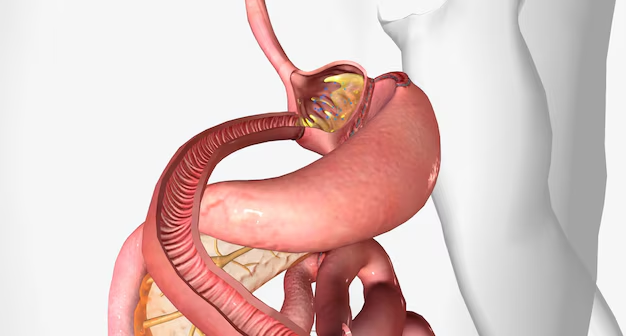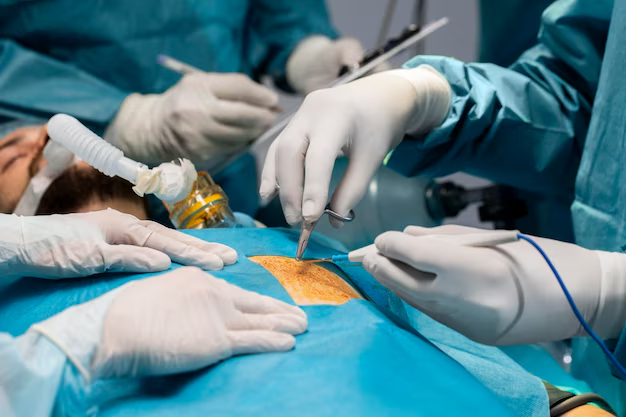What Is A Gastric Bypass Surgery
Gastric Bypass Surgery, also known as Roux-en-y gastric bypass, is a kind of bariatric surgery that is combined with sleeve gastrectomy. It is one of the major weight loss surgeries that can help you lose up to 55-70% of your excess weight. It works by separating the upper part of the stomach pouch from the rest. Then, immediately divert it to the part of your small intestine so the food will only go to the upper section of the stomach. Thus, when the patient eats a small portion of food, he will immediately feel full, as if his stomach was filled with plenty of food. This procedure takes between 2-4 hours.
The most essential condition a patient must meet to have the surgery is to have a suitable Body Mass Index (BMI). The eligible BMI for the surgery is 35 or higher. For the eligible patient, Gastric Bypass Surgery can treat many disorders apart from obesity, such as sleep apnea, heart disease, high cholesterol, and blood pressure, and many more.

Keep in mind that after getting a Gastric Bypass, since the stomach pouch that receives the food will be smaller, the calories and nutrients that your body absorbs will be lessened. Therefore, your surgeon will prescribe some vitamins and immune system supporter supplements. You may need to use these vitamins and supplements for a long time period.

Candidates For Gastric Bypass Operation
Not everyone is suitable to undergo a Gastric Bypass operation. The patient must meet some conditions to be a candidate. The most important ones are:
- The person wishing to have this operation must not weigh less than 40 kg.
- The person wishing to have this operation must have a BMI of 35 or higher.
- The person wishing to have this operation must be healthy and not suffer from any conditions that caused this excess weight.
- The person wishing to have this operation must be free from blood clotting problems, as they may lead to severe bleeding during the operation.
- The person wishing to have this operation must be free from serious and chronic diseases, such as heart conditions, type 2 diabetes, high blood pressure, high cholesterol, and immunodeficiency.
- A person who suffers from obesity and related health problems, such as osteoporosis and cartilage melting.
- A person who has failed to lose weight through exercise and a balanced diet.
- The patient must not have any infections with certain viruses, such as hepatitis C virus, Anemia, and Aids.
Pre-Gastric Bypass Operation Tips
Before undergoing the Gastric Bypass Surgery, the patient must undergo some procedures first, such as:
- The patient must undergo some medical tests first to make sure their health situation is suitable for the operation.
- Refrain from eating or drinking anything for eight hours before the Gastric Bypass Operation.
- Refrain from smoking for at least two weeks to a month before the operation.
- Refrain from having any blood thinners, such as green tea.
- Refrain from all kinds of caffeine, such as Arabic coffee and tea, for at least two weeks before the operation since they make it difficult to anesthetize the patient.
- Refrain from taking any medications that can lead to blood thinning for at least two weeks before the operation.


Stages Of Gastric Bypass
The Gastric Bypass Surgery has three main stages:
- Anesthesia stage: At this stage, the patient is given general anesthesia to protect the patient from feeling any pain during the operation.
- Sleeve gastrostomy stage: At this stage, the doctor sleeves the upper section of the stomach, which is a small stomach pouch section that can accommodate up to 28 grams of food. Thus, the food will go directly without passing by the larger lower section, forcing the patient to eat only small amounts of food.
- Gastric transformation stage: At this stage, the doctor connects the upper part of the stomach directly to the small intestine through a small hole to allow the food to pass to the small intestine.
Post-Gastric Bypass Surgery Tips
Some guidelines and instructions must be followed by patients who have undergone gastrointestinal bypass surgery. The most important of them are:
- Refrain from eating immediately after the operation. You can only intake fluids. By that time, you can start eating pureed food for a while, then some light, soft food, and finally, you can eat solid complex food.
- Take vitamins and mineral supplements, which include iron, calcium, and vitamin B12.
- Refrain from doing any great effort or carrying any heavy things for at least a month after the operation.
- Refrain from smoking for at least two weeks to a month after the Gastric Bypass Operation.
To maintain the operation results and have a long-term solution to your excess weight, you must follow a balanced diet and exercise regularly.






